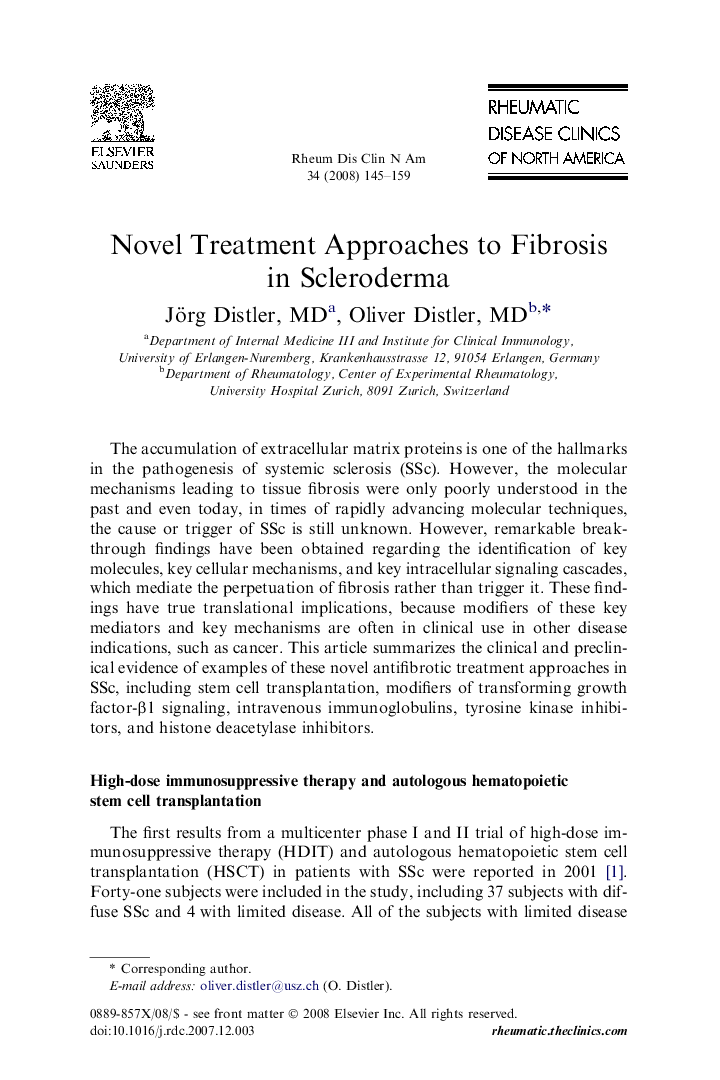| Article ID | Journal | Published Year | Pages | File Type |
|---|---|---|---|---|
| 3390651 | Rheumatic Disease Clinics of North America | 2008 | 15 Pages |
The molecular mechanisms leading to tissue fibrosis were only poorly understood in the past, and even today the cause or trigger of systemic sclerosis is still unknown. Remarkable breakthrough findings have been obtained regarding the identification of key molecules, key cellular mechanisms, and key intracellular signaling cascades, which mediate the perpetuation of fibrosis rather than trigger it. These findings have true translational implications, because modifiers of these key mediators and key mechanisms are often in clinical use in other disease indications, such as cancer. This article summarizes the clinical and preclinical evidence of examples of these novel antifibrotic treatment approaches in systemic sclerosis, including stem cell transplantation, modifiers of transforming growth factor-β1 signaling, intravenous immunoglobulins, tyrosine kinase inhibitors, and histone deacetylase inhibitors.
